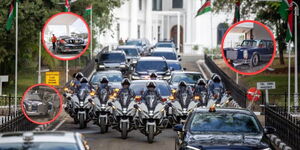Boda boda riders across the country have threatened to stage demonstrations if the government proceeds with implementing the motorcycle regulation bill currently before Parliament.
Appearing before the Parliamentary Committee on Transport, the Boda Boda Safety Association of Kenya strongly opposed the bill, terming it not only retrogressive but also punitive.
In their memorandum to the committee, boda boda operators described the bill as fundamentally flawed, overly bureaucratic, and financially unsustainable.
They argued that it duplicates the existing mandate of the National Transport and Safety Authority (NTSA), undermines the constitutional roles of county governments, and risks politicising the sector.
Other key concerns raised during the meeting included the proposed establishment of 47 county-level Motorcycle Transport and Safety Boards and the requirement for mandatory SACCO membership.
According to the Association, such provisions are punitive and could foster corruption in a sector that has been instrumental to Kenya’s economic growth.
“The Bill is a solution in search of a problem,” the associations stated, warning that its implementation could increase operational costs, create regulatory confusion, and cause economic setbacks for riders.
Despite the concerns, members of the committee backed the bill and encouraged the boda boda representatives to suggest amendments rather than reject the proposal outright.
“You have an opportunity to shape laws that work for you. Don’t dismiss the bill entirely, propose changes,” said Bureti MP Komingoi Kibet.
Laikipia East MP Mwangi Kiunjuri acknowledged the associations' concerns, advocating for strengthening existing institutions like the NTSA rather than creating parallel systems.
Security concerns were also highlighted, with MPs Abdi Saney and Hussein Weytan noting the increasing use of motorcycles in criminal activities, including drug trafficking and attacks on civilians.
In response, the Office of the Inspector-General of Police proposed the formation of a multi-sectoral coordination committee comprising the NTSA, police, Council of Governors, and rider associations to facilitate joint planning and enforcement.












